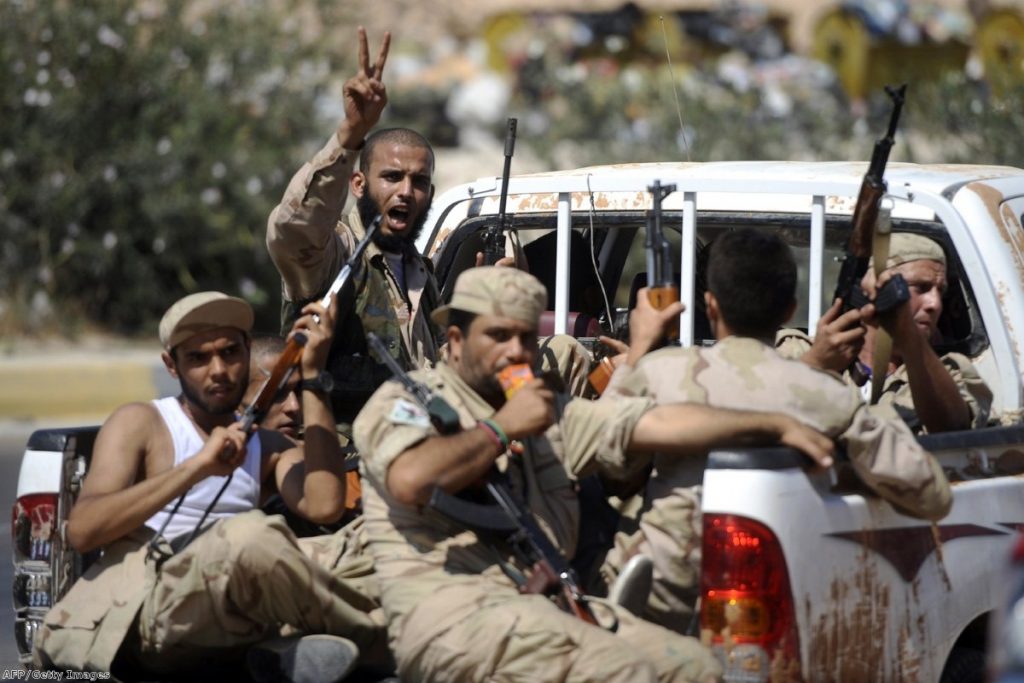Nato presence will remain in Libya ‘until peace reigns’
By Ruth McKee
Nato military operations in Libya will continue as long as "a threat remains to civilian life", leaders have pledged.
The commitment was agreed to in a conference call between US president Barack, French president Nicolas Sarkozy, German chancellor Angela Merkel and UK prime minister David Cameron.
Foreign secretary William Hague agreed with this assessment that the campaign, which was used to support the Libyan rebels in their attempts to topple the Gaddafi regime, would continue until NATO "is sure that there are no remaining pockets of pro-Gaddafi fighters who can again become a threat to the civilian population".


While acknowledging that the death of Gaddafi was a huge blow to fighters loyal to the unseated dictator, he told Sky News: "I just sound a note of caution because we will want to be sure that the, the situation really now is dramatically more peaceful than it’s been."
It is expected that a Nato presence will remain in the country, as Libya struggles to rebuild in the wake of the devastating civil war.
"The immediate challenge is to make sure that the various different militias that have fought in the revolution are under a central authority and control. And that really comes with the formation of the transitional government so we’ll be looking out for that," Mr Hague said.
"We and all the other key countries that have been involved in Libya are stressing to the Libyans the importance of that but I, I do think they understand that themselves."
New defence secretary Philip Hammond was upbeat in his assessment of the situation, calling the £300 million campaign "pretty much over" as he issued a rallying cry to British businesses saying they should be "packing their suitcases" to help Libya rebuild in the aftermath of Gaddafi's death.
After yesterday's capture and killing of the self-styled "brother-leader" the prime minister expressed his pride in Britain's role in the mission.
"I think today is a day to remember all of Colonel Gaddafi's victims, from those who died in connection with the Pan Am flight over Lockerbie, to Yvonne Fletcher in a London street, and obviously all the victims of IRA terrorism who died through their use of Libyan Semtex. We should also remember the many, many Libyans who died at the hands of this brutal dictator and his regime."
Labour leader Ed Miliband praised the Libyan people for creating their own "democratic destiny" and stressed the need for Britain to support the National Transitional council as "it seeks to improve economic and social conditions," for everyone in the country.









